Written by: Tamás Szallabek
From: VIMOSZ
The International Food Waste Coalition (IFWC) is a non-profit organisation dedicated to addressing food waste in the European contract catering sector. Formed with a vision aligned with the United Nations Sustainable Development Goal 12.3—to halve global food waste by 2030—the coalition brings together major players mostly from the contract catering sector to promote sustainable practices. The IFWC’s coalition members include prominent companies like Sodexo, Elior, and Compass Group, leading efforts to reduce food waste across their operations. Together, these members work towards the coalition’s goal of reducing food waste by 50% by 2025, engaging at least 50% of the members’ sites in the process of food waste reporting.

This report, which has been published yearly since 2019 provides a detailed overview of food waste reduction progress in Europe’s contract catering sector. Produced annually, it serves as a critical tool for tracking efforts and measuring success against the IFWC’s ambitious food waste reduction targets. The report has grown to cover an increasing number of sectors and countries starting from 162 participants in 2019. This year’s edition marks a significant milestone, with over 3,800 participants in food waste reporting across 13 countries.
The 2024 IFWC Food Waste Reduction Report offers valuable insights into the coalition’s progress and challenges. In 2023 a 110% increase in reporting sites was reached. Although this growth is a great remark, only 15% of sites are currently engaged in the reporting process, as the participanting members cover around 25 000 sites in total. It highlights a great need for further development as the target is 50% in this case. The retention rate of food waste reporting was 77%, meaning more than three-quarters of the participants who had previously reported their food waste did so again last year.
In total, food waste per cover has decreased by 45% since 2019, which is a significant achievement given the coalition’s goal of reducing it by 50% by 2025. However, the rate of decrease has slowed down. While food waste per cover was reduced by 19% in 2023, this year the reduction was only 5%. Just like reducing the numbers, saving more food becomes increasingly difficult. The majority (70%) of the reporting sites have the potential to cut waste by at least an additional 50%, providing an excellent foundation for further work.
Plate waste still accounts for the largest proportion of total food waste at 37%, followed by service waste (35%) and preparation waste (28%). The corporate sector shows the largest reduction in food waste, particularly at the service stage, where post-pandemic changes in buffet offerings and remote working have contributed to less waste. In 2018, according to the EPA’s Factsheet, plate waste accounted for 41% of total food waste, followed by service waste (40%) and preparation waste (19%). Although comparing these numbers can be challenging due to differences in data quality, this reduction in plate waste is a significant achievement.
The IFWC Food Waste Reduction Report is a critical document that underlines the importance of coordinated efforts to reduce food waste. The data not only demonstrates progress but also serves as a call to action for further engagement from more sites. Reducing food waste is essential for addressing both environmental and ethical concerns, particularly as the world races to meet the 2030 target set by the United Nations.
In this context, initiatives like WASTELESS could play a pivotal role. By leveraging innovative technology and educational programs, WASTELESS can contribute to improving food waste management at the consumer and institutional levels. Incorporating predictive tools for food preparation, enhancing staff training, and promoting greater consumer engagement are some of the ways WASTELESS can align with and support the IFWC’s mission to halve food waste globally.
If you would like to read the full report, click HERE.
